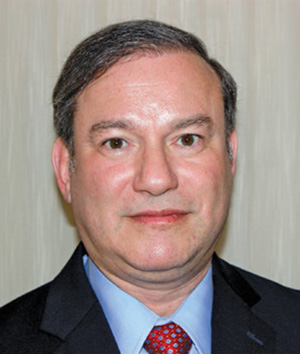In Parshat Shoftim we read about the individual who was preparing for battle. In describing such a person the Torah writes, “When you do battle with your enemies, let your heart not be faint, do not be afraid, do not panic and do not be broken…” (Devarim 20:3). Instead, this individual was admonished to have no fear, “… for Hashem, your God, goes with you to fight your enemies, to save you.”
R’ Chaim Shmulevitz commented that this verse applies outside of actual war situations as well. This may apply to our personal lives and internal feelings at times.
We may harbor many harmful, baseless emotions that serve as “enemies” within us, misguided feelings that we must battle to defeat. Fear, panic and depression, in and of themselves, are often our worst enemies. Many times these adverse emotions, if allowed to have control over our lives, can cause us to be broken and dysfunctional. It may even affect our physical health.
The statistics are telling. Eighteen percent of Americans experience some form of clinical anxiety. Eight percent of Americans have some form of major depressive disorder. Twenty percent of us will experience serious symptoms of depression at some point in our lives. An article published in Scientific American noted that one in six adults uses a psychiatric medication to alleviate their maladaptive mental health symptoms. The most common such drugs are antidepressants.
“Doom and gloom” thinking is the antithesis of a spiritual mindset. If a person is anxious and has little faith in Hashem, his anxiety might be contagious and may affect those whom he comes into contact with. That is why the fearful soldier is relieved of duty from the onset. The Talmud in Brachot (60a) records a discussion between the Sages on how being fearful and anxious in everyday life is something to be discouraged and avoided. Accordingly, we see that the Torah anticipated thst some people would be excessively anxious and spoke to them on this matter.
R’ Dr. Abraham Twersky once remarked to me that when we pray for someone to have a “refuah sheleima,” a full and speedy recovery, we ask first for “refuat hanefesh,” a recovery of the spirit, before we ask for “refuat haguf,” a recovery of the body. This teaches us that the body cannot heal properly before one’s mental health is on the mend and is stable.
What is the antidote to baseless anxiety and depression? It is the acknowledgment of the divine as referenced in the above verse, “For Hashem, your God, is the one who goes with you, to fight for you with your enemies, to save you.” Once we recognize that we are not in this alone and that we have the best “backup” there can be, we realize that we are well prepared to battle with any adverse emotions—that Hashem is in charge and the universe is unfolding as it is meant to be.
There are four references in the verse related to the adverse effects of severe anxiety. These citations refer to being faint, afraid, panic-stricken and broken. This is in contrast to the seven references throughout the previous parsha of Re’eh where we are actually commanded to be “b’simcha,” happy. Seven beats four in this instance. One cannot be happy and content, being mindful of Hashem’s blessings, and be anxious and depressed at the same time.
The Tanya teaches, “Mitzva gedolah lehiyot b’simcha tamid,” that it is a great mitzvah to always be in a state of simcha. David Hamelach wrote in Tehillim, Perek 100, “Ivdu et Hashem b’simcha,” that one should always worship Hashem with simcha. The Gemara (Shabbos 30b) states that the Divine Presence rests upon a person only if he is in a state of simcha. The Minchat Chinuch counts the mitzvah of celebrating the Yomim Tovim in simcha as positive mitzvah number 488 based on the words in Parsha Re’eh “V’samachta B’chagecha.”
While it is rare for the Torah to legislate our emotions, in this instance it also serves as good advice and is beneficial to our mental health. So next time we may have occasion to do battle with the demons of excessive, baseless anxiety and depression, let us recall the lessons of the Torah. We must do our best not to give in to the feelings of fear, panic and being broken. Instead, let us be mindful of the blessings of Hashem and the promise that He will fight our battles for us, whether they be external or internal. May Hashem bless us to absorb this message so that we are better able to experience the peace of mind we all deserve.
Rabbi Dr. Avi Kuperberg is a forensic, clinical psychologist in private practice. He is vice president of the Chai Riders Motorcycle Club of NY/NJ. He leads the Summit Avenue Shabbos Gemara shiur and minyan in Fair Lawn, NJ, and is a member of the International Rabbinical Society. He can be reached at [email protected].










